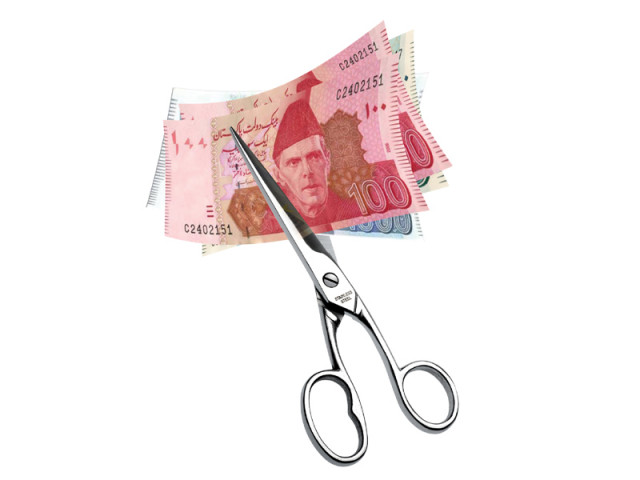Money for nothing: MPAs hold their breath as higher salaries considered
40% increase suggested in salaries, allowances for elected representatives.

A delayed payday may be in store for key government members if salary increases are approved.
A standing committee has recommended a 60% increase in salaries and allowances of members and a 40% hike in the salaries and allowances of the speaker, deputy speaker, ministers and special assistants. But the decision, if approved by the Sindh Assembly in its current form, may actually be in effect from July 1, 2011. This would mean their cheques would have to be backdated. The only problem is that finance bills cannot be retrospective, clarified Syed Sardar Ahmed, who is the parliamentary leader of the Muttahida Qaumi Movement and a former provincial finance minister. Ahmed is quoted in the report as saying this to the committee.
The report by the Standing Committee on Law, Parliamentary Affairs and Human Rights was presented to MPAs in the Sindh Assembly on Wednesday, but the discussion was deferred for ‘financial considerations’.
The committee offered its recommendations on four government bills referred to it: for amendments to the Salaries, Allowances and Privileges Acts for ministers, special assistants, MPAs and the speaker and deputy speaker.
The committee slightly revised downward the government’s proposals. For example, the government had proposed to increase ministers’ pay to Rs80,000 from its current Rs39,000. The committee recommended it to be increased to Rs54,600. It has also been proposed that ministers’ sumptuary allowance be increased to Rs42,000 from Rs30,000. Special assistants to the chief minister will be paid Rs15,400 instead of Rs11,000.
The committee has also recommended raising the pay of MPAs from Rs15,000 to Rs24,000, the sumptuary allowance from Rs3,000 to Rs4,800 and house rent allowance by Rs6,000 to make it Rs16,000.
While the committee has proposed a Rs10,000 monthly allowance for MPAs, the finance department told the committee that the impact would be more than Rs6 million per year. The department said that the impact of a 40% increase per year would be Rs30 million.
For the speaker and deputy speaker, the government had proposed a monthly salary of Rs80,000 and Rs70,000 respectively, which the committee approved. It has also proposed increasing the Sindh Assembly speaker’s housing allowance from Rs39,500 to Rs55,300 and the deputy speaker’s housing allowance to Rs49,000 from the current Rs35,000.
The members of the committee, and the ministers invited to partake in their discussions, made some rather interesting points. The education minister noted that Sindh received half of the office maintenance allowance Punjab did.
PPP MPA Humera Alwani said that 10 consultants hired for the Sindh Education Foundation were being paid Rs250,000 and Rs275,000 every month, while a Sindh minister was paid Rs30,000 a month. “It was being said that MPAs having VIP status and (sic) more privileged then (sic) consultants,” the report states. In another meeting of the committee, Alwani said that while “public representatives and ministers will be gladder to work without a single penny but then there should be reduction in the salary of the consultants keeping in view the constraints of the public exchequer.” In another meeting, she said that the elected representatives were not being given salary increases with the reasoning that it would be a burden on the provincial exchequer.
At a meeting in 2010, the standing committee had decided to propose a 100% increase in MPA salaries and a 50% increase for ministers, advisers and special assistants to the CM, and a 60% increase for the speaker and deputy speaker. At a meeting in 2012, the committee decided to change this to 60% for MPAs, the speaker and deputy speaker and 40% for ministers, advisers and special assistants.
Published in The Express Tribune, August 10th, 2012.



















COMMENTS
Comments are moderated and generally will be posted if they are on-topic and not abusive.
For more information, please see our Comments FAQ